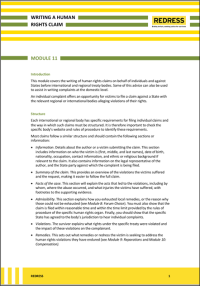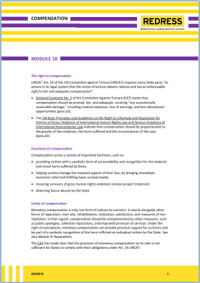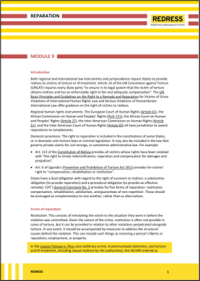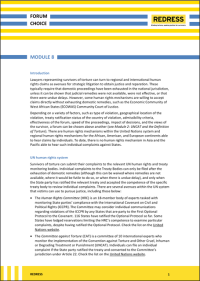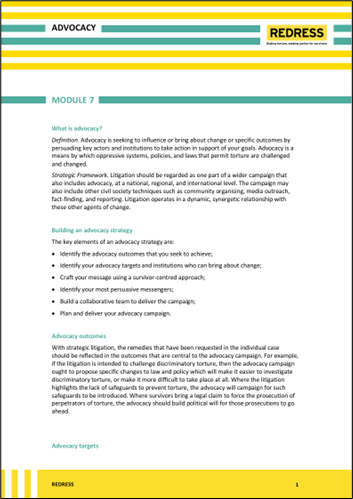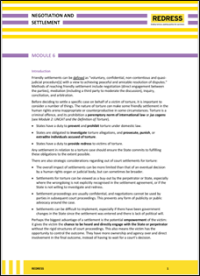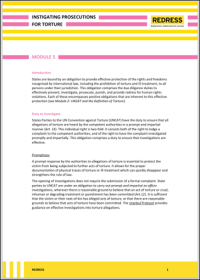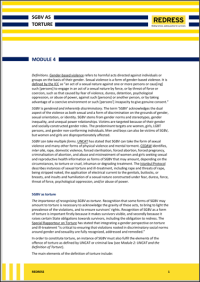Publications
REDRESS’ publications are also available in hard copy format. Please contact us for further information on [email protected].
This training module covers the writing of human rights claims on behalf of individuals and against States before international and regional treaty bodies. Some of this advice can also be used to assist in writing complaints at the domestic level.
This training module explains what compensation is, its different forms, functions and limits. It also explains who is entitled to compensation and the challenges and obstacles in pursuing compensation in torture cases.
This training module explains what reparation is, its many forms, principles and standards. It also provides practical and comparative examples related to claiming and accessing reparations in different contexts in a survivor-centred manner and proposes strategies to overcome obstacles in the journey towards reparation.
This training module gives an overview of the different forums where survivors of torture or lawyers representing survivors of torture can submit their complaints to obtain justice and reparation.
This training module gives an overview of Advocacy, building advocacy strategy and identifying advocacy outcomes and targets. The module also discuss how to develop a survivor-centred narrative, the importance of building alliances and timing advocacy efforts.
This training module gives an overview on negotiation and settlements, how to consider settlement for torture cases, the power imbalance in settlement negotiations, and also examines the settlements under regional or domestic systems.
This training module gives an overview of States' obligation in providing effective protection of the rights and freedoms recognised by international law, including the prohibition of torture and ill-treatment, its duty to investigate, prosecute and punish.
This training module examines which instances SGBV constitutes to torture, situations where SGBV takes place, and state obligations towards survivors, including the obligation to redress.
